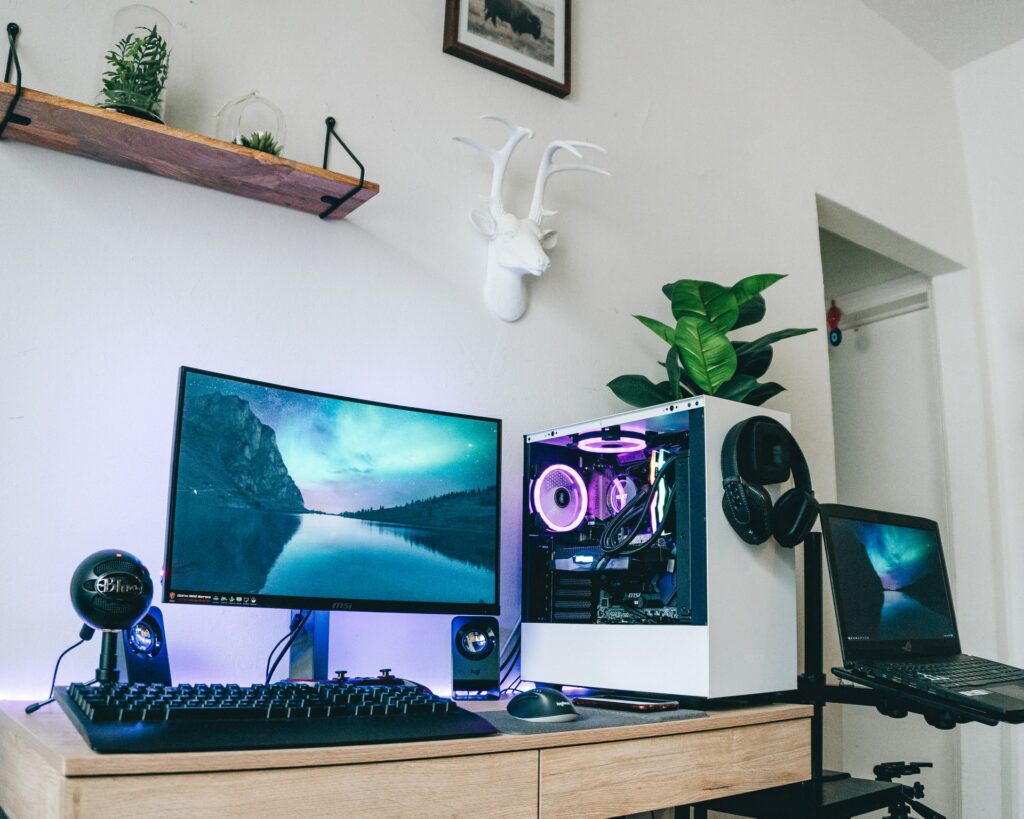How To Secure Your Privacy While Streaming to Twitch
Streaming is a fun way to meet new people and put yourself out there in the world, both literally and figuratively. But as you know, the internet isn’t always the safest place to be so it’s important to secure your privacy while streaming to sites like Twitch. As we’ve seen recently, especially with IRL streamers, they are subject to stream snipers and dangerous SWAT raids. So, we’re going to give some tips on maintaining your privacy online while you’re streaming.
So what things do you want to keep secure? Well, the most important thing is your location. Next are vital details, like your full name, birthday, email address, and phone number. People can use these details to hack into your various online accounts. Finally, you may want to keep certain accounts private, like your steam accounts, discord accounts, basically anything where someone could report your account and get it banned for illegitimate reasons.
Secure your Web Browser while Streaming to Twitch
If you’re doing a just chatting stream or watching some youtube videos, anything where you’d be showing a web browser on screen, be very careful. Many times, when you’ve signed in to your browser it will track your location data and show nearby restaurants when you search different terms, this is an easy way for people to find out your location.
Your address may also be auto-saved so it may pop up when you input some numbers your browser thinks is a text field. The best solution is to use private or incognito browsing on a separate browser. So if you’re always using Chrome, jump over to Edge or Firefox and don’t save any passwords there when you’re streaming. Also, be sure to turn off any location tracking or auto-fill to avoid revealing your location. Doing simple things like this can be key to securing your privacy while streaming to sites like Twitch.

IRL Stream Safety
If you think you’ll be IRL streaming, make sure to start your stream far away from where you live or are staying and end your stream before you are close to home. Also if you’re using a streaming backpack, add a stream delay to the cloud PC that’s running your streaming relay.
Make sure to stream in public places if you anticipate that you might encounter stream snipers (people trying to find where you are can then track you down while you’re live). If you will be IRL streaming with others, be sure to let them know not to reveal any information about you or themselves, such as phone numbers, location, etc while you’re live or on social media.
Keeping Yourself Secure While Streaming Audio and Video
Always be aware when your webcam and microphone are on. If you’re ordering a pizza and leave your mic on, there’s your address given out on a stream. Fortunately, there are some handy tools in XSplit Broadcaster to help with this. For your microphone, you can enable a hotkey to toggle your microphone on and off.
For your webcam, use it with XSplit VCam. In XSplit VCam you can pause your camera feed and if you use the background replacement feature, once you’re out of frame, whatever you do in the background will be hidden, helping you secure your privacy while streaming to sites like Twitch.
Hide your screen to secure your privacy on Twitch!
Ideally, you never want to show your desktop on stream, and with XSplit Broadcaster just grabbing your gameplay source or Capture card alone is easy. If you’re using an intermission just chatting kind of scene, make sure it’s only your facecam with some graphics rather than just capturing your desktop so people see it when you quit out of a game
If you don’t like to switch scenes, set up a source you can toggle on and off with a macro that will cover your scene. This is mostly an issue for dual PC setups, but it’s good to take heed of this as well if you have to use desktop capture for a certain program or beta of a game that Broadcaster can’t capture yet but this is a rare instance.

Disable Notifications While Streaming
Turning off as many notifications as possible is pretty important if you don’t want to have the first few lines of an email or text come up on screen while you’re streaming. This can also apply to other people’s privacy, for example, Steam will let you know when someone has come online and what they’re playing. This also applies to consoles where you may not want everyone watching to know the usernames of all of your friends that you’re playing with. This can honestly be a big part of the day-to-day when it comes to securing your privacy for streaming to sites like Twitch.
Most instances of this can be combated by going into the Steam or console settings but there are a lot of games that have a streamer mode now which can remove a lot of these issues. Speaking of streamer mode, Apps like Discord are great for having one of these where they can detect if a streaming app is open and hide personal or sensitive information in the app.
Finally, make sure to check what your streaming account is connected to. If you’ve been using your Twitch account to login into various websites, it’s good to double-check those sites and revoke access from time to time, as sometimes they lapse in security and your data can be exposed.
As always, it’s not fun to read the fine print, but it’s important if you value your privacy and want to maintain an online presence. Secure your online privacy on sites like Twitch and it will be one less thing you need to think about when you next go live! We hope you found this article helpful and if there is anything else you would like us to discuss, the comments section below is the place to let us know!
